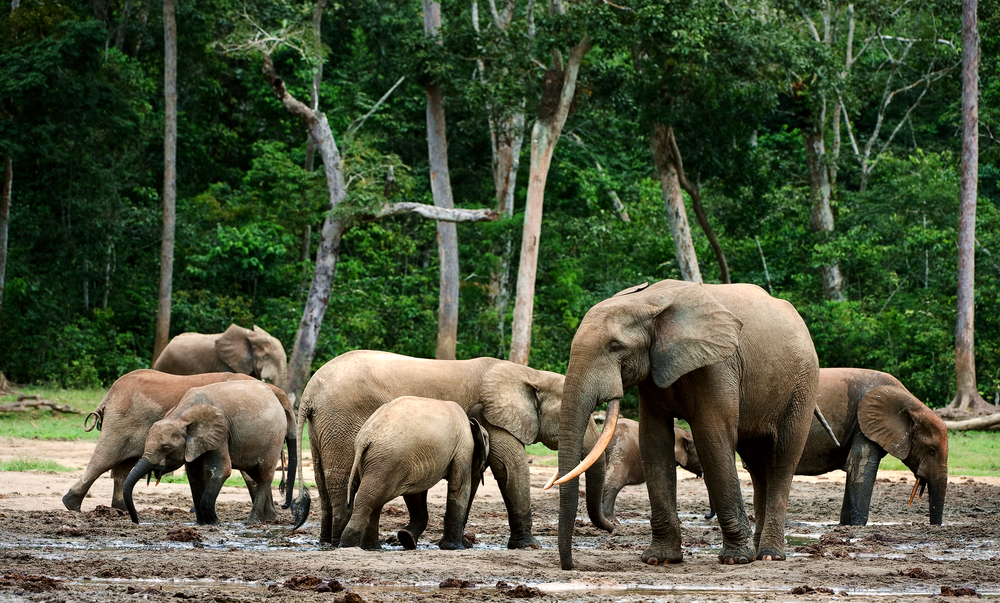ImpactAlpha, August 1 – The biggest failure of nature conservation and restoration efforts “are the unrewarded provision of public goods and services,” the U.N. Environment Programme declared in a report last year.
Case in point: the Democratic Republic of the Congo’s decision to auction off oil-drilling rights in one of the most biodiverse and carbon-critical land masses on the planet. The Congo Basin accounts for more than 5% of the worlds’ tropical forests, 70% of Africa’s forestland, and is home to one of the planet’s last active land-based carbon sinks.
The central African country, long ravaged by poverty, war, corruption, and colonial and post-colonial resource exploitation, is eying $32 billion in annual revenues, bolstered by surging oil prices amid a global energy crisis.
What’s needed: an urgent and radical effort to reward the DRC for the public good of keeping the oil in the ground. Such an effort would represent an unprecedented step-up in global nature-based solutions finance, which logged only $133 billion in financing in 2020.
Current examples of debt-for-nature swaps, conservation bonds and other financial instruments are far too small to offset the DRC’s projected oil revenues. But the models at least offer the potential to make it comparably lucrative to leave the oil in the ground as to drill for it.
Carbon bomb…
The government of the DRC estimates there are 16 billion barrels of oil below the Basin. Exploiting the country’s vast oil reserves could generate $32 billion in revenues annually — that represents about two-thirds of the DRC’s current GDP. The 16 oil “blocks” that are being auctioned include a gorilla sanctuary, indigenous communities, and critically, millions of acres of peat swamp.
Never mind the climate impacts of heightened fossil fuel use. Disturbing or burning the peat areas could release nearly six billions of tons of stored carbon into the atmosphere.
“In a zone where there are peatlands, any industrial exploitation means the explosion of a carbon bomb,” said Irene Wabiwa Betoko of Greenpeace’s Congo Basin project.
Or carbon markets
The DRC’s decision to auction its oil blocks is an economic growth decision. “Our priority is not to save the planet,” said Tosi Mpanu Mpanu, the DRC’s minister of hydrocarbons.
Economic growth and climate action could be aligned, however. Last year, DRC President Felix Tshisekedi spoke with U.S. President Joe Biden about what it would take to preserve the Congo Basin: a $100-per-ton price on carbon.
“Achieving carbon neutrality will not be possible without taking into account the conservation and regeneration of forests,” he said. “But the current price of forest carbon, at $5 per ton, is neither fair nor realistic. A fair price for forest carbon that incorporates foregone opportunities should be at least $100 per ton.”
The U.S. is negotiating a 10-year, $1 billion forest carbon credit scheme with the DRC. The World Bank has a $42 million initiative with the country. A group of 12 international donors pledged $1.5 billion to protect the Congo Basin over the next four years.
“Though a great step,” commented Armstrong Mba, advisor to the Zoological Society of London, the financing is “insignificant compared to what these same pledgers pay as subsidies to the fossil fuel industry each year.”
Scaling natural capital
More than $8 trillion is needed by 2050 for land-based climate solutions. The $133 billion invested in 2020 represents only 25% of what’s needed annually; 86% came from public sources.
African countries at the Petersberg Climate Dialogue last month called for carbon credit and conservation schemes to be linked to sovereign debt reduction. Such schemes are being tested in the Seychelles and Belize, but represent hundreds of millions of dollars, against tens of billions in emerging markets’ debt payments owed this year alone.
Mia Mottley, prime minister of Barbados, has spoken forcefully about how the global capital system anchors emerging and frontier economies in debt while stifling their ability to adapt to climate change (check out ProPublica’s excellent long-form article on the issue and Barbados’ response). Her government has called on members of the International Monetary Fund to allocate 1% of their roughly $13 trillion in national reserves to a global climate trust for low-interest development lending.
Other emerging markets are testing their own solutions. Costa Rica has introduced a carbon-emissions tax that supports conservation and reforestation.
In 2007, Ecuador tested global appetite for a pay-for-conservation scheme by seeking to raise $3.6 billion not to drill for oil in its Yasuni National Park. The trust fund it set up raised just $13 million, and Ecuador opened the area for exploration and drilling.
The example is a cautionary tale about what’s at stake if emerging markets’ natural resources, from which the global community benefits, continue to be financially and economically undervalued. Eve Bazaiba Masudi, the DRC’s vice prime minister and minster of the environment, warned of as much at a U.N. convening on development and the environment in Stockholm in June.
“The DRC, despite its environmental potential, has not benefited sufficiently from climate funds,” she said. “This is why we expect fair funding in exchange for the services provided by our forests.”











